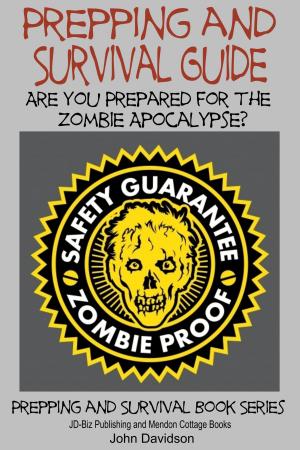Teach Yourself Stitch Craft and Dressmaking Volume VI: Introduction to Trousers and Slacks - Drafting patterns for stitching pants, trousers, and slacks
Nonfiction, Art & Architecture, General Art, Fashion| Author: | Dueep Jyot Singh | ISBN: | 9781311500779 |
| Publisher: | Mendon Cottage Books | Publication: | February 6, 2016 |
| Imprint: | Smashwords Edition | Language: | English |
| Author: | Dueep Jyot Singh |
| ISBN: | 9781311500779 |
| Publisher: | Mendon Cottage Books |
| Publication: | February 6, 2016 |
| Imprint: | Smashwords Edition |
| Language: | English |
Table of Contents
Introduction
Drafting of Trousers and Slacks
Attaching the Zipper
Drafting of Pleated Pants
Measurement
Back
Fitting for a Flat Derrière
Fitting the full Derrière
Pants with Additional Pleats
Baggy Trousers Draft
Front Portion
Back Portion
Pocket
Waist Band
Zip Strip
How to Sew and Assemble Baggy Trousers
Waistband
Formal Trousers
Front portion
Back Portion
Sewing Instructions
Author Bio
Publisher
Introduction
I once remembered a pep talk being given by a baseball coach, to his team, which was not very enthusiastic about the coming baseball game. “So,” he thundered, “what is so scary about that other team? They also put their pants on one leg at a time, don't they.”
His team won the game. After all pants are such necessary parts of our outfit, that we do not bother much about their importance in our lives and in fashionable style. In the 1950s pants had 2 and 4 pleats, they were baggy and then the time came for elephant bottom and bell bottom pants.
Ladies used to wear stylish slacks and jeans were nondenominational and universal. Pants are also known as trousers, but the cutting principles are the same. The draft of a plain pant without any pleats can be done by adding in extra for the pleats at the center top. In the same manner, narrow bottom trouser drafts can be changed into bell pants after making changes at the knee portion and at the bottom of the pants.
While taking the measurement of the pants, you have to make sure that the pants have to be adjusted so that they can fit up to the crotch to the extent desired. After that, you have to stand straight so that the body rests well on the legs with the feet about 8 inches apart, so as to give free play for measurements.
Table of Contents
Introduction
Drafting of Trousers and Slacks
Attaching the Zipper
Drafting of Pleated Pants
Measurement
Back
Fitting for a Flat Derrière
Fitting the full Derrière
Pants with Additional Pleats
Baggy Trousers Draft
Front Portion
Back Portion
Pocket
Waist Band
Zip Strip
How to Sew and Assemble Baggy Trousers
Waistband
Formal Trousers
Front portion
Back Portion
Sewing Instructions
Author Bio
Publisher
Introduction
I once remembered a pep talk being given by a baseball coach, to his team, which was not very enthusiastic about the coming baseball game. “So,” he thundered, “what is so scary about that other team? They also put their pants on one leg at a time, don't they.”
His team won the game. After all pants are such necessary parts of our outfit, that we do not bother much about their importance in our lives and in fashionable style. In the 1950s pants had 2 and 4 pleats, they were baggy and then the time came for elephant bottom and bell bottom pants.
Ladies used to wear stylish slacks and jeans were nondenominational and universal. Pants are also known as trousers, but the cutting principles are the same. The draft of a plain pant without any pleats can be done by adding in extra for the pleats at the center top. In the same manner, narrow bottom trouser drafts can be changed into bell pants after making changes at the knee portion and at the bottom of the pants.
While taking the measurement of the pants, you have to make sure that the pants have to be adjusted so that they can fit up to the crotch to the extent desired. After that, you have to stand straight so that the body rests well on the legs with the feet about 8 inches apart, so as to give free play for measurements.















